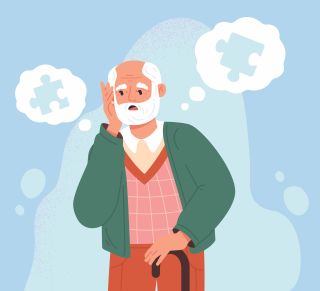Dementia
Are You Confusing Your Loved One With Dementia?
Don’t tell a person with dementia what not to do—tell them what they should do.
Posted August 23, 2024 Reviewed by Davia Sills
Key points
- People with dementia commonly think they should do things that they are told not to do.
- Don’t tell a person with dementia what they shouldn’t do.
- Simply tell the person with dementia what they should do.

Exasperated, the daughter of one of my patients called me on a Friday afternoon to say that now her father was doing the opposite of what she wanted him to do. She told him not to go downstairs, and the next thing she knew, he was downstairs. Later, she told him not to use the stove, and within an hour, she could smell the pot burning with whatever he had left in it.
She didn’t know whether there was a medicine that could fix these problems, but she told me that something needed to be done or he wasn’t going to be able to stay in her home much longer!
In my last blog, I explained that false memories often occur in dementia. One type of false memory that is common in everyone—including young, healthy individuals—is believing an incorrect or untrue fact is actually true. In one study my colleagues and I conducted, we gave healthy older adults and individuals with mild dementia due to Alzheimer’s disease a list of statements that were randomly assigned to being either true or false. For example, “It takes 36 coffee beans to make a cup of espresso: True,” and “The 53 bus will take you across town: False.” We then simply asked the participants whether each sentence was true or false.
Although participants generally found it easy to recall that the true sentences were true, they were highly likely to recall that the false sentences were also true. This belief that the false statements were true happened about 40 percent of the time in our healthy older adults and about 60 percent of the time—more than half—for those with dementia. These results mean that our telling those with dementia that a certain statement was false made them more likely to remember that it was true than if we didn’t say anything about the statement in the first place!
The explanation as to why this confusion occurs is actually very simple. When you remember that a statement is true, you just have to remember one thing: “the statement.” But when you remember that a statement is false, it’s much more complicated. You need to remember the statement, remember that something is false, and remember that it is “the statement” that is “false.”
Although we can usually remember these three things without difficulty, those with Alzheimer’s and other causes of dementia can generally only remember one of those things (usually “the statement”) and have great difficulty remembering all three. Because they can only remember the statement and not that it is false (or wrong or what they shouldn’t be doing), they end up thinking it is true (or correct or what they should be doing). Thus, we need to simply tell a person with dementia what they should do.
Returning to my patient’s daughter, I explained how—with the best of intentions—she may have inadvertently contributed to her father going downstairs and using the stove. By telling him not to do these things, she accidentally caused him to falsely remember that he should do these things. I explained that what she needed to do was simply to tell him what he should be doing, such as to stay on the first floor and use the microwave if he needed to heat something up. We also reviewed how to help him stay safe in the home.
© Andrew E. Budson, M.D., 2024, all rights reserved.
References
Budson AE, O’Connor MK. Six Steps to Managing Alzheimer’s Disease and Dementia: A Guide for Families, New York: Oxford University Press, 2022.
Budson AE, O’Connor MK. Seven Steps to Managing Your Aging Memory: What’s Normal, What’s Not, and What to Do About It, New York: Oxford University Press, 2023.
Budson AE, Kensinger EA. Why We Forget and How to Remember Better: The Science Behind Memory, New York: Oxford University Press, 2023.
Mitchell, J. P., Sullivan, A. L., Schacter, D. L., & Budson, A. E. (2006). Misattribution errors in Alzheimer's disease: The illusory truth effect. Neuropsychology, 20(2), 185–192.


